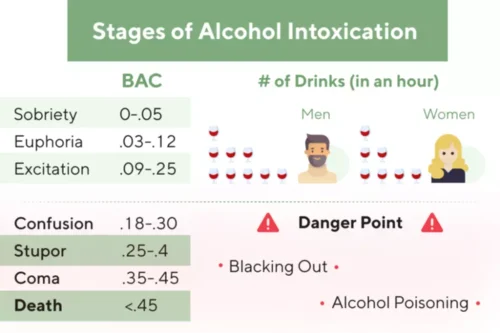If we are to provide medication-assisted treatment and prescription digital therapeutics, we must do so within the context of clinical medicine. Therefore, we must also accept that alcoholism and various other types of drug addiction are medical disorders that benefit from medical treatment. Seeing addiction in this light will help change the addiction treatment industry to move in the direction of providing better medical care for patients. There has been debate and discussion for decades about addiction being a disease or not being a disease. Experts from multiple fields in medicine and psychology have also debated over the definition of addiction.
Alcohol Recovery Timeline: What To Expect When You Quit Drinking

During the pre-initiation stage, a person is feeling these effects of alcoholism, but they do not typically want to alter their habits. They are likely to act defensively when the topic is brought up and deny being an alcohol addict. This is the first of the alcoholism recovery stages and the stages of alcoholic recovery most difficult one. Nurturing long-term recovery involves ongoing commitment to personal growth, self-reflection, and accountability. It’s essential to continue attending support groups, counseling sessions, or therapy to address any underlying issues and maintain a strong support system.
- This stage of recovery begins the moment you decide to stop drinking.
- Two psychologists and their colleagues came up with TTM in the 70s.
- In this section, we will define alcoholism and explore the importance of recognizing the need for recovery.
A Guide to Court-Mandated Alcohol & Drug Classes
In the action stage, people have chosen an approach to sobriety and they’re executing it. Once people in the contemplation stage shift away from just thinking about their alcohol problem and begin focusing on a solution, they’ll move toward stage three of recovery. Doing a cost-benefit analysis to weigh the benefits of alcohol use against the cons and costs can sometimes help a person find clarity at this stage. With alcohol, our consumption and dependency grow over time, ever so subtly. Besides its two pleasant party tricks, alcohol has another two secret tricks hidden up its sleeve that hijack our brains.

Stage Five: Sustaining Abstinence
Regular heavy drinking can seriously affect a person’s ability to coordinate their muscles and speak properly. The problems relating to alcohol dependence are extensive, and its effects can be physical, psychological, and social. Typically, a diagnosis of alcohol use disorder doesn’t require any other type of diagnostic test.
- This stage involves ongoing self-reflection, personal growth, and maintaining a commitment to sobriety.
- It’s essential to continue attending support groups, counseling sessions, or therapy to address any underlying issues and maintain a strong support system.
- They believe that the risk of relapse always remains and that the disease requires lifelong treatment.
- The journey of alcohol recovery involves several stages, including detoxification, rehabilitation, maintenance, and long-term sobriety.
- Each stage serves a specific purpose and builds upon the previous one, creating a solid foundation for lasting change.
Factors that Influence Alcohol Recovery Time

During the rehabilitation stage, individuals can choose between inpatient and outpatient programs based on their specific needs and circumstances. Inpatient programs, also known as residential treatment programs, require individuals to reside at a treatment facility for a certain period of time. These programs provide a structured and supportive environment away from triggers and temptations, allowing individuals to solely focus on their recovery. In the first stage of alcohol recovery, individuals must come to terms with the fact that they have a problem with alcohol consumption.
What Are the 6 Stages of Addiction Recovery?

There are strategies of distraction and action people can learn to keep them from interrupting recovery. Another is to carefully plan days so that they are filled with healthy, absorbing activities that give little time for rumination to run wild. Exercise, listening to music, getting sufficient rest—all can have a role in taking the focus off cravings. The endpoint is voluntary control over use and reintegration into the roles and responsibilities of society.
Addiction is a serious condition.
- According to one Harvard study, this stage can be expected after not drinking alcohol for at least five years, but we find it’s different for everyone.
- Once you leave one of our 90-day rehab centers, you can continue to attend treatment on an outpatient basis.
- They are not occasion for blame or despair but for encouraging resumption of recovery.
- It offers an opportunity to break free from the destructive cycle of alcohol abuse and regain control over one’s life.
- After completing detoxification, individuals can progress to the next stages of rehabilitation, where they can address underlying issues and develop strategies for long-term recovery.
- Addiction doesn’t just affect individuals; addiction is a family affliction.
We hope this introduction to the main alcoholic recovery stages has been helpful. There is now a convincing answer to the question of “can you recover from alcoholism.” It is much easier to beat alcoholism with the help of trained professionals at a rehab center. Treatment programs last for a minimum of 30 days and can go on for one year.

Recent Comments